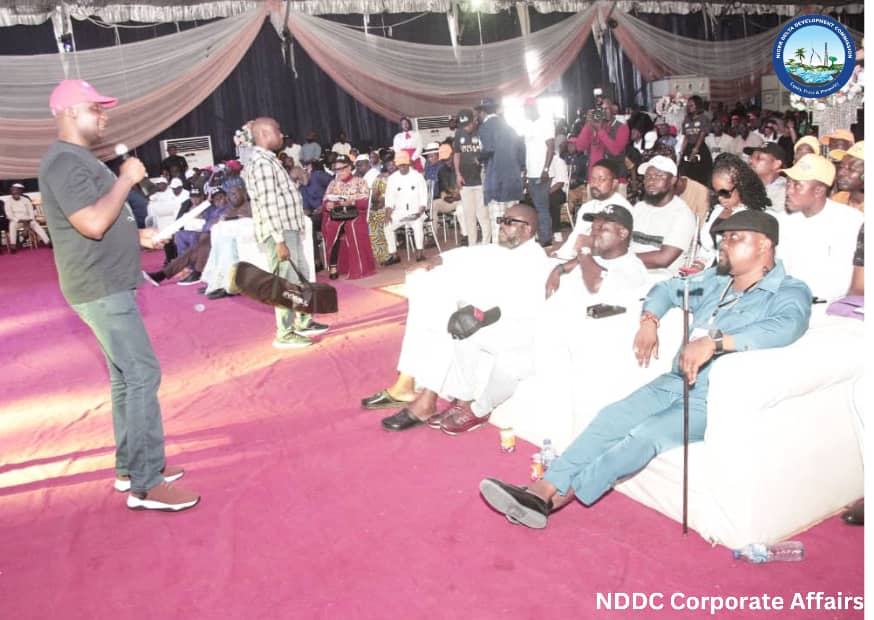Niger Delta Development Commission (NDDC) has reiterated their commitments towards to prioritize youth empowerment and development.
The Managing Director, NDDC Dr. Samuel Ogbuku who disclosed this during an interactive session with opinion leaders and youth groups in the Niger Delta region in Port Harcourt, expressed underscored the importance of building capacity of youths through strategic programmes and projects.
He assured stakeholders that NDDC would henceforth, meet with critical stakeholders on a quarterly basis to help in the formulation of the Commission’s overall strategies for the development of the Niger Delta region.
He further revealed that the HOPE project had helped the Commission to develop a comprehensive digital repository, comprising important information about the youths of the Niger Delta region; including their qualifications, skills, interests, needs, and current employment status; adding that the commission has a duty to harness resources from different groups.
Ogbuku further said that the commission was working with the Niger Delta Chamber of Commerce in the training of youths and young entrepreneurs in the Niger Delta region; explaining that the Commission would collaborate with the Chamber of Commerce to support Small and Medium Enterprises in the region and ensure the sustainability of youth development programmes.
He also charged the Niger Deltans not to allow politicians to destabilise the NDDC, as such action was bound to hinder the development and sow the seeds of discord among Niger Deltans
In his words: “We have gathered at this forum to hear from the youths; to interact with them and rub minds because we realise that we cannot be planning programmes for youths without involving them at the foundational level.
“We have given more opportunities and hope to Niger Delta youths through our Holistic Opportunity Projects of Engagement, HOPE, meant to identify interests of the youths for skills training.
“Not until we give all our leaders, political, traditional, youths, women and other leaders in the Niger Delta that platform and opportunity to discuss what our future should be, we may not understand the direction that our people want to go.
“So far, 470,000 youths have registered in the database and we will partner with youth organisations to ensure that all our youths are registered. This database will serve as a plank for data-driven planning, enabling the formulation of impactful policies and programmes targeted at the youths.
“We will also partner with the Bank of Industry to fund projects and support businesses and facilitate the success of our empowerment programmes. We will provide all the necessary support for youth entrepreneurship schemes.
“We will soon hold a Niger Delta Stakeholders Summit and the youths must be a part of it. We need to continually provide the platform for all our stakeholders to contribute ideas for the development of the Niger Delta region.
In his remarks, NDDC Executive Director, Finance and Administration, Alabo Boma Iyaye, affirmed the importance of stakeholder engagements in driving the development process, stating that NDDC recognised the fact that youths were the backbone of any society.
Speaking earlier, the President of the Survival of the Ijaw Ethnic Nationality in the Niger Delta (MOSIEND), Comrade Kennedy West, commended the leadership of the NDDC for providing a platform for interaction for youth groups in the region, noting that it was important to continually engage in discussions to lay a foundation for sustainable development.
Comrade West applauded NDDC for initiating the Project HOPE, which was expected to engage youths of the region by creating employment opportunities for them, especially in agriculture.
The coordinator for Project HOPE, Ambassador Blessing Fubara, said that the programme would help to engage youths of the region by creating employment opportunities for them; pledging that the second phase of the youth empowerment programme would focus on commercial agriculture, information and communication technology, even in the creative industry.
By Aligwe Stella, PH

























